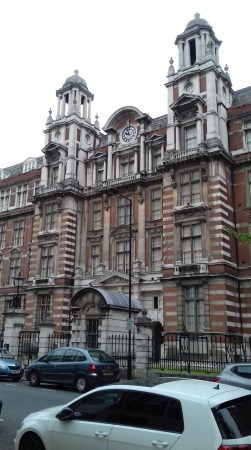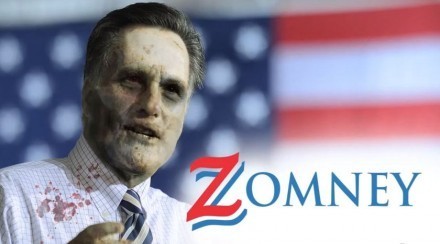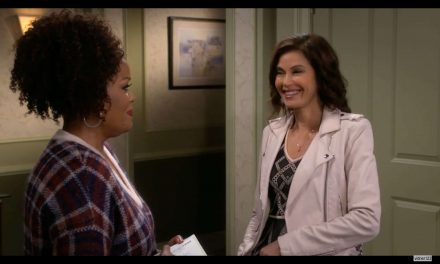Well, not exactly a virgin. I have been to the BBC Written Archives at Caversham, but archive work is very new to me. In my [ahem] 20-plus years as an academic I have mostly worked on primary texts – popular fiction, film and television – and secondary criticism. Beginning to work with archive material, raw from the dusty folders in which they are usually kept, is a novelty. Despite some cynicism at the fetishization of archival research across the arts and humanities I find myself seduced. I have discovered the frisson of opening largely unread files and folders, fingering those faded materials, reading the receipts, contracts and correspondence. Archives are absolutely fetishistic. They have their own rules and rituals which researchers are required to submit to.
Recently my work has taken me to the Victoria and Albert Museum’s Theatre and Performance Archive at Blythe House in Kensington, to examine the extensive personal collection that June Whitfield deposited there shortly before her death in December 2018. The V&A is beginning to develop its collection of material about contemporary comedy performers, such as the Tommy Cooper collection which was acquired in 2016.

Victoria and Albert Museum’s Theatre and Performance Archive at Blythe House, Kensington, London (UK)
To get in to the Reading Room at Blythe House you have to press a buzzer and be let in though imposing iron gates by the security guard on reception. Belongings are deposited in a locker at reception with a numbered key. You sign in, write down the key number and are issued with a coloured wristband much like at a festival. Apart from Fridays, when there is no wristband. Why? Nobody seems to know. It is just how it is. Then you proceed to the reading room carrying only a laptop, memory stick and pencils. Only pencils, no pens, and no water bottle either, so if you are hungover or otherwise dehydrated this is not a good place to spend the day. The reading room has space for about 20 scholars, seated with their backs to each other along the walls or down the middle of the room. Painted creamy white with high windows it has a monastic air appropriate to archival work. Voices are reverently lowered, apart from the odd American.
Archivists sit at the desk by the door and, if you know what’s good for you on your first visit, you will have already registered for a library card online and brought the relevant forms of ID. They sent you information about all this when you first contacted the archive to book time in the reading room. If you have somehow failed to follow the required procedure the archivists will be stern, but kind. They know that some of us have had to travel far and that we have had to apply for resources and time to be in the reading room. It is precious. They will remind you of the retrieval times; the schedule each day for material to be excavated from the unseen depths of the archive and delivered to the reading room. These are precious things. Finally, you are there, in your seat, with your pencils, and paper, and memory stick, with the folders that you requested, diligently, in advance. You begin to work through the material.
This was my moment of panic. Imposter syndrome began to tick away loudly. What, exactly, was I looking for? Why, exactly, was I there? This kind of archival research is an odd thing for a television scholar who has worked on the visible product rather than the processes of production or its audiences. The few folders of material relating to June Whitfield’s work at the BBC Written Archive divulged little useful information; mostly correspondence about contracts between BBC executives and Whitfield’s agents. Yet such scraps are still valuable. Those folders demonstrated that (a) June Whitfield had done a great deal of work with the BBC throughout her career, and (b) that she was often paid far less than her male colleagues in the profession. This provided background and fuel for a chapter about Terry and June (BBC 1979-87) in Helen Davies and Sarah Ilott’s collection Comedy and the Politics of Representation (Palgrave, 2018).
The June Whitfield Collection at the V&A is very different, however, as it represents material collected and curated by Whitfield and her family. The most significant part of this for my work is a series of 23 scrapbooks, which document most of June Whitfield’s professional career. The first scrapbook was started by Whitfield’s mother, but the rest appear to be collated by June herself. They include newspaper and magazine interviews, features and photos, as well as viewing figures from The Stage and TV Times, demonstrating how Whitfield tracked the development and popularity of shows she worked on. There are also invitations to events and many articles about her charity work. What this offers is an invaluable resource, including material from tabloid papers and popular magazines which is often difficult to source. The V&A collection was catalogued by Suzy Quinn, Whitfield’s daughter, also an actor, which gives the collection a satisfying sense of completion. The scrapbooks, together with 851 other folders of material which constitute the archive, evidence the labour required by a career in comedy.
Whitfield was meticulous in her approach to each role, writing out her lines on the back of scripts in order to memorise them more effectively, and earning an affectionate title ‘The Comic’s Tart’ from friend and colleague Roy Hudd, because she worked with everyone who worked in comedy.[i] My impression is that she worked with everyone because they knew she was a fantastic performer and consummate professional. She could be relied upon to deliver lines, tolerate the trials of television production and maintain a reasonably upbeat demeanour throughout. As the title of her autobiography notes, she was always …and June Whitfield; team player, supporting actor and national treasure. What I hope to find out from my work in the archives is what this cost. In many ways Whitfield’s career is remarkable in its length, breadth and quality, but it is also a fascinating account of the exigencies of professional work in an unstable business. Not unlike the current academic landscape.
After a day in the archive I would stagger out, retrieve my bag and head for whatever unreasonably-priced accommodation I had managed to find in London. The air was sweet and – at least during the summer – it felt like a release to be outside again. Most of all, archive work gives you a sense of labouring. It seems more measurable than sitting down to write about a television series or a show with only the recording and some secondary criticism to work with. After a day at the archive you can see that you have covered this number of documents, files, scrapbooks. You can plan for the next day, the next visit. But you cannot know what you are going to find. You are setting out on an expedition, metaphorical pith helmet firmly in place, hoping that there is something to see. After all, you have come a long way.
Rosie White is Senior Lecturer in Contemporary Literature, Theory and Popular Culture at Northumbria University (UK). Recent work includes Television Comedy and Femininity: Queering Gender (I B Tauris, 2018), together with essays on Roseanne, Miranda and Lucille Ball.
Footnotes
[i] June Whitfield, …and June Whitfield: The Autobiography (London: Corgi Books, 2000), p.12





How great to read of other people getting such a buzz out of using archives – still love the process myself, and that was such a wonderfully vivid description of what it’s like. I’ve seen a few TV documentaries looking at performance collections held at the V&A and they always look fascinating.
I wish that I could get down to the BBC WAC more often. So much good stuff down there!
Thanks for an engaging text that I can relate to! 🙂
Many thanks
Andrew
Thanks Andrew; it’s really worth a visit and people need to go soon as the V and A at Blythe House is about to shut its doors for a move to the Olympic village in Stratford. That means a huge amount of material will be unavailable for a while – and there is so much to see!